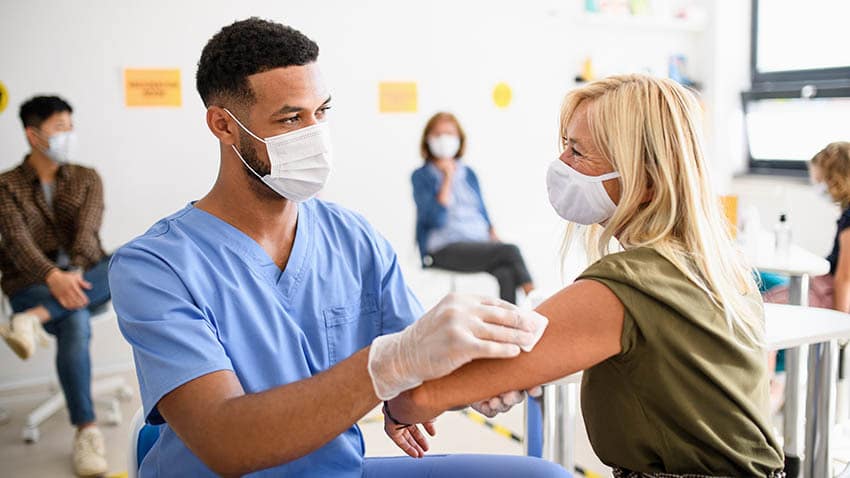Shopkick survey uncovers consumer sentiment toward COVID-19 vaccines and how it will impact current shopping habits
For some, widespread vaccinations offer a glimmer of hope that life will soon return to normal. However, with many Americans (44 percent) planning not to receive the vaccine, consumers say vaccinations will hardly change their current shopping behaviors. In fact, nearly all consumers (96 percent) say they will continue to take personal safety precautions while shopping, and of those who have already received the vaccine, less than half (48 percent) report feeling more comfortable shopping in-store now.
In its ongoing commitment to support brand and retail partners with regular insights during the COVID-19 pandemic, Shopkick surveyed more than 20,000 consumers between Jan. 20-24, 2021, to learn about current shopping behaviors and how the vaccine impacts those habits.
National Vaccine Insights:
- Many consumers do not plan to get the vaccine. While most consumers surveyed have either already received the vaccine (8 percent) or plan to receive it (48 percent), 44 percent say they do not plan to get vaccinated.
- Millennials are the least confident in the vaccine. Millennials make up the largest segment of people not confident in the vaccine (35 percent) and do not plan to get vaccinated (51 percent). Comparatively, America’s youngest and oldest consumers appear the most confident in the vaccine, with 71 percent of Gen Zers and 75 percent of Boomers feeling some level of confidence.
- Vaccinations do not mean consumers will flood back indoors. Of those who have already received the vaccine, less than half (48 percent) report feeling more comfortable shopping in-store and taking part in other indoor activities, and only 18 percent say they will do so more frequently now vaccinated. Similarly, of those who plan to get the vaccine, only 15 percent say they will shop in-store or take part in indoor activities more frequently after receiving the vaccination.
- Personal health and safety habits are here to stay. Nearly all of those who have already been vaccinated or plan to be vaccinated say they will continue to take personal safety precautions while shopping in-store (96 percent and 97 percent, respectively). Precautions include wearing protective face coverings (93 percent), using disinfectants (87 percent), shopping at less busy times (66 percent), using debit or credit cards to avoid exchanging cash (66 percent), using self-checkout (58 percent), or wearing protective gloves (21 percent).
- Consumers expect health and safety to remain top-of-mind for retailers. Even if a large majority of Americans are vaccinated, 79 percent of consumers expect retailers to continue enforcing health and safety restrictions, such as requiring protective face coverings for shoppers and employees (89 percent), offering disinfectants for shoppers (86 percent), enforcing 6-feet-social distancing (80 percent), keeping plexiglass barriers at checkout (74 percent), and limiting the number of shoppers allowed inside (62 percent). According to 62 percent of respondents, enforcing these guidelines will influence where they choose to shop.
Additional Insights Include:
- More than half of consumers are using BOPIS for essential purchases. As consumers try out different options for picking up the essentials, 55 percent say they are now using BOPIS (buy online, pickup in-store) at varying degrees, including sometimes (35 percent), often (11 percent), or very often (9 percent).
- Stockpiling rates are down and consumers are seeing the impact on store shelves. Forty-nine percent of consumers say they are currently stocking up on essential items, a decrease from November 2020 findings, when a whopping 61 percent of shoppers were stockpiling. In turn, 41 percent say essential items that were out-of-stock or low-in-stock one month ago are now more in-stock, compared to 36 percent who say items are still out-of-stock and 23 percent who have not yet noticed a difference.





